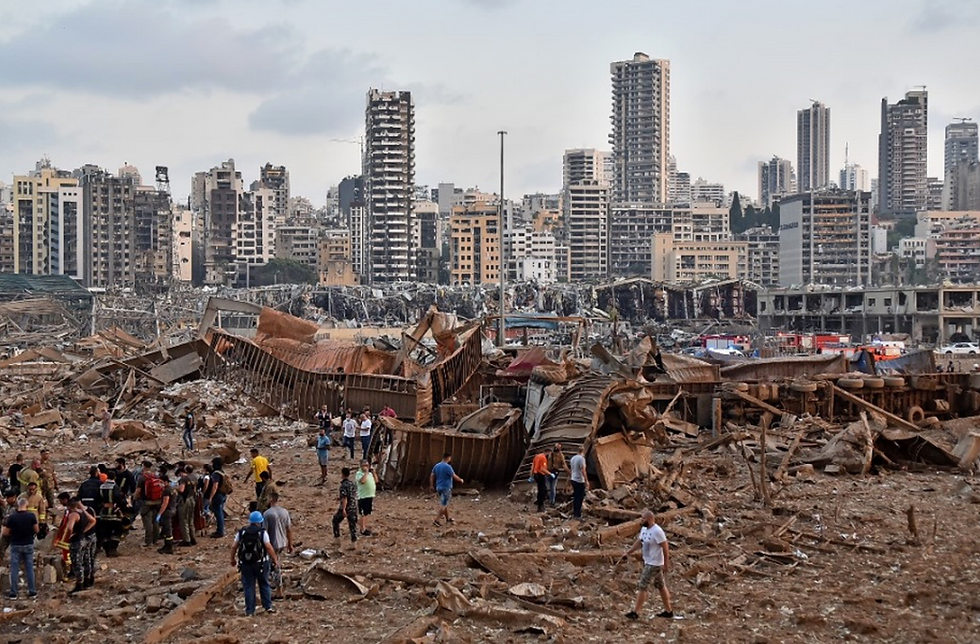What is happening in Lebanon – economic crisis and protests
- Chiara Haegelsteen
- Sep 17, 2021
- 3 min read

Lebanon’s financial stability in the 1950s and 60s made its capital, Beirut, a magnet to so much tourism that it gained the titles of ‘’Paris of the Middle East’’ and ‘’Switzerland of the East’’. However, nowadays, Lebanon is the victim of one of the worst financial collapses since the 1800s. Life there is a daily struggle, as food, fuel and medicine are unaffordable to most people, and many of them are leaving, attempting to go somewhere with better life conditions.
Over the past years, political instability and constant financial mismanagement by the government has dragged the country deeper and deeper into debt. By 2018, the government’s failure to deliver political and economic reforms led to massive protests driven by citizens willing to show their anger against the government that had failed them repeatedly. After this, took place the famous 2020 explosion at the Port of Beirut, followed by the global pandemic, which worsened the situation of this country, already on the track of financial disaster.
As mentioned before, Lebanon’s economic collapse has been ranked amongst the world’s worst since 1800 by the world bank, and since 2019, the Lebanese pound has lost more than 90 percent of its value. As a result of Lebanese pound crashing, hyperinflation pushed the food prices up by 400 percent. Medicine provided by the government is running out, there are massive power shortages and even those relying on private generators don’t have enough fuel to run them. And this situation is expected to continue, as a recent report form the World Bank estimates that the Lebanese economy will shrink by about 10 percent this year with the country’s GDP dropping exponentially.
One of the main events that boosted this financial crisis is the huge explosion that took event in Beirut, which caused an estimated 15 billion dollars’ worth of damage. The government was aware of the danger presented by this port but remained in inaction towards the situation. Lebanese people had already been protesting against the state for months. In October 2019, there were tens of thousands of protesters in the streets, willing to demonstrate their dissatisfaction against the incompetence and corruption of the government, which they successfully brought down, but was replaced by one that seemed equally useless.
In August 2020, after the explosion, citizens marched against the government which they held directly responsible for the devastation. In order to respond to their anger, massive amounts of police forces were sent to the streets, which led to over 700 protestors to be injured.
The situation kept on escalating after the protests, which made the government declare a state of emergency on August 13th, and since then, the army has been patrolling the streets of Beirut, and getting more control, meaning the authorisation to get people from their houses, disperse them and arrest people whenever they assemble, and even censor TVs, radios, and others.
The current situation is that the Lebanese currency (LBP), has lost around 80-90 percent of its value against the US dollars, as mentioned before, which is a catastrophe for them, as this country was already considered poor. It is becoming harder to get hard foreign currency, as the supply is decreasing, and a black market willing to make profit off money exchange is raising prices, so that 100,000 LBP, which used to be worth around 66 dollars, has now dropped to less than 10. Unemployment is at about 60 percent, and half of all Lebanese live below the poverty line.
Works cited:
TRT World. “Lebanon’s Economic Crisis Explained.” YouTube, 21 Aug. 2021, www.youtube.com/watch?v=SwmY6OEltk. Accessed 12 Sept. 2021.
BBC News. “Lebanon: Why Is the Country in Crisis and What’s Happening? - BBC Newsnight.” YouTube, 27 July 2021, www.youtube.com/watch?v=IMkx4MEEnB0. Accessed 12 Sept. 2021.
DW Documentary. “Lebanon in Crisis | DW Documentary.” YouTube, 29 Apr. 2021, www.youtube.com/watch?v=Qfq3RV11wk8. Accessed 12 Sept. 2021.
BBC News. “Lebanon: Why the Country Is in Crisis.” BBC News, BBC News, 5 Aug. 2020, www.bbc.com/news/world-middle-east-53390108. Accessed 12 Sept. 2021.
“World Offers Support, Condolences to Lebanon after Devastating Blast.” Timesofisrael.com, 2021, www.timesofisrael.com/world-offers-support-condolences-to-lebanon-after-devastating-blast/. Accessed 12 Sept. 2021.





Comments